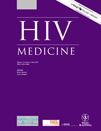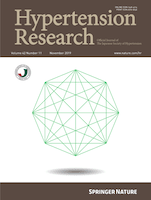
International Journal of Noncommunicable Diseases
Scope & Guideline
Empowering research for a healthier tomorrow.
Introduction
Aims and Scopes
- Epidemiological Research:
The journal publishes studies investigating the incidence, prevalence, and mortality rates of noncommunicable diseases, particularly in low- and middle-income countries, to highlight the burden of these diseases. - Health Interventions and Policy:
Research focusing on the effectiveness of various health interventions, including community-based programs and health policy initiatives aimed at reducing the impact of NCDs. - Systematic Reviews and Meta-Analyses:
The journal frequently features systematic reviews and meta-analyses that synthesize existing research on NCDs, providing comprehensive insights into treatment efficacy, risk factors, and health outcomes. - Innovative Health Technologies:
Research that explores the use of technology, such as mHealth and telemedicine, in managing and preventing noncommunicable diseases, reflecting the journal's commitment to modern healthcare solutions. - Socioeconomic and Environmental Factors:
Investigations into how socioeconomic status, lifestyle choices, and environmental factors contribute to the prevalence and management of NCDs, emphasizing a holistic approach to health.
Trending and Emerging
- Mental Health and NCDs:
There is an increasing focus on the relationship between mental health disorders and noncommunicable diseases, indicating a growing recognition of the interplay between psychological well-being and physical health. - Impact of COVID-19 on NCDs:
Research exploring the effects of the COVID-19 pandemic on the management, prevalence, and outcomes of noncommunicable diseases has surged, reflecting the urgent need to understand this intersection. - Community-Based Interventions:
An emerging trend is the emphasis on community-based interventions that target multiple health behaviors and conditions, showcasing a shift towards more integrated and participatory health strategies. - Health Equity and Disparities:
Research addressing health disparities and the social determinants of health in the context of noncommunicable diseases is on the rise, highlighting the importance of equity in health outcomes. - Technological Innovations in Healthcare:
The journal is increasingly publishing articles that examine the role of technology in the prevention and management of NCDs, including the use of digital health tools and telemedicine.
Declining or Waning
- Traditional Risk Factors:
Research on traditional risk factors such as smoking and dietary habits has decreased, possibly as the field shifts towards exploring more complex interactions and emerging risk factors. - Single Disease Focus:
Studies that concentrate on individual diseases, such as isolated diabetes or hypertension, are becoming less common as the journal increasingly emphasizes comorbidities and integrated care approaches. - Basic Health Education:
There is a noticeable decline in papers focusing solely on basic health education about NCDs, as more emphasis is placed on community interventions and innovative health communication strategies.
Similar Journals

Iranian Journal of Public Health
Empowering communities through evidence-based practices.Iranian Journal of Public Health is a premier publication dedicated to advancing the field of public health research. Established in 2001 and published by the Iranian Scientific Society Medical Entomology, this Open Access journal provides an invaluable platform for disseminating innovative findings and practices aimed at addressing public health challenges both locally and globally. With its roots tracing back to 1973, the journal has evolved through multiple converged years, reflecting a rich history of commitment to the health sciences. Currently categorized in Q3 within Public Health, Environmental, and Occupational Health, as per the 2023 rankings, it ranks 406 out of 665 in the Scopus database, placing it in the 39th percentile. This significant positioning underscores its role in fostering high-quality research that informs policy and enhances community health outcomes. The editorial team is dedicated to upholding rigorous academic standards while embracing diverse perspectives that resonate within the dynamic landscape of public health. It is an essential resource for researchers, professionals, and students alike, fostering collaborative efforts in the relentless pursuit of health equity and sustainability.

Journal of the Practice of Cardiovascular Sciences
Empowering Research, Transforming Cardiovascular PracticesJournal of the Practice of Cardiovascular Sciences, published by Wolters Kluwer Medknow Publications, is an esteemed Open Access journal dedicated to advancing knowledge in the field of cardiovascular health. With its ISSN 2395-5414 and E-ISSN 2454-2830, the journal serves as a vital platform for researchers, healthcare professionals, and students to disseminate and access high-quality studies, innovations, and practical applications related to cardiovascular sciences. Established in 2015 as an Open Access journal, it promotes widespread sharing of insights to enhance cardiovascular practices and address contemporary challenges in the field. As part of a reputable publishing group, the journal is poised for growth and impact, contributing significantly to the ongoing dialogue in cardiovascular research and clinical practice.

Infectious Diseases of Poverty
Advancing knowledge at the crossroads of health and poverty.Infectious Diseases of Poverty, published by BMC, is a leading open-access journal dedicated to addressing the critical intersection of infectious diseases and poverty. Since its inception in 2012, this influential journal has contributed significantly to the fields of public health, infectious diseases, and environmental health. With impressive rankings placing it in the top quartile (Q1) across multiple categories—including Infectious Diseases and Public Health, Environmental and Occupational Health—it stands as a vital resource for researchers and practitioners alike. The journal's commitment to accessibility ensures that high-quality research is available to a global audience, fostering collaboration and knowledge sharing. Based in the UK, Infectious Diseases of Poverty aims to publish innovative research that sheds light on the complexities of infectious diseases and their socio-economic determinants, ultimately working to improve health outcomes in vulnerable populations around the world. With its robust impact factor and esteemed standing within the academic community, this journal serves as an essential platform for advancing the understanding and management of infectious diseases related to poverty.

Journal of Oral Science
Unveiling critical reviews that shape oral health practices.The Journal of Oral Science, published by NIHON UNIVERSITY, SCHOOL OF DENTISTRY, stands as a pivotal platform in the realm of dental research and oral health. Since its inception in 1998, this reputable journal has dedicated itself to the dissemination of innovative findings and critical reviews across various sub-disciplines of dentistry, highlighted by its impressive Scopus Rankings positioning it in the 64th percentile in General Dentistry. With categories ranking Q2 in Dentistry and Q3 in Medicine for 2023, it reflects a significant contribution to the body of knowledge in oral science. Although it is not an Open Access publication, researchers and professionals will find its curated content indispensable for advancing oral health practices and exploring new dental methodologies. For scholars seeking to expand their expertise in oral sciences and connect with fellow researchers, the Journal of Oral Science provides an essential resource, facilitating knowledge exchange and fostering advancements in dental science.

INTERNATIONAL JOURNAL OF CLINICAL PRACTICE
Fostering Global Collaboration in Clinical MedicineINTERNATIONAL JOURNAL OF CLINICAL PRACTICE is a premier peer-reviewed academic journal published by WILEY-HINDAWI, dedicated to advancing the field of clinical medicine. With an ISSN of 1368-5031 and E-ISSN 1742-1241, this open access journal has been providing a platform for insightful research since its inception in 1997 and continues to contribute significantly to the medical community, as indicated by its Q2 ranking in Medicine (miscellaneous) for 2023 and its position in the top 15% of Scopus-ranked journals. The journal invites innovative studies, systematic reviews, and clinical trials, making it a critical resource for healthcare professionals, researchers, and students seeking to stay updated on the latest clinical practices. Based in the United Kingdom at Adam House, 3rd Fl, 1 Fitzroy Sq, London W1T 5HE, this journal supports open accessibility, enhancing the dissemination of vital research findings across the globe. Join the growing community of scholars who contribute to and benefit from this influential publication as it continues to shape the future of clinical practice.

Obesity Reviews
Leading the Charge in Obesity Awareness and InterventionObesity Reviews is a premier, peer-reviewed journal published by WILEY that has established itself as a leading platform in the multidisciplinary fields of endocrinology, public health, and obesity research since its inception in 2000. With an impressive Q1 ranking in both Endocrinology, Diabetes and Metabolism and Public Health, Environmental and Occupational Health, this journal provides a significant contribution to understanding the complexity of obesity and its associated health implications. The journal features comprehensive reviews and original research that illuminate the underlying mechanisms, public health challenges, and innovative interventions related to obesity. With a strong commitment to advancing knowledge and research, Obesity Reviews continues to attract high-impact studies, as evidenced by its top-tier Scopus rankings—placing it in the 98th and 96th percentiles within its fields. The journal is based in the United Kingdom and serves as a vital resource for researchers, professionals, and students dedicated to combating obesity and improving health outcomes worldwide.

Clinical Obesity
Transforming Understanding into ActionClinical Obesity, published by WILEY, is a leading journal in the field of Endocrinology, Diabetes, and Metabolism that strives to advance the understanding of obesity-related health issues. With an ISSN of 1758-8103 and an E-ISSN of 1758-8111, this journal provides a platform for cutting-edge research and findings pertaining to the epidemiology, pathophysiology, prevention, and treatment of obesity. Recognized with a Q2 ranking in both Endocrinology, Diabetes and Metabolism and Medicine (miscellaneous) categories, and boasting a Scopus rank of #90 out of 244, Clinical Obesity encompasses innovative studies that influence clinical practice and public health policies. While this journal operates under a subscription model, its discipline-specific contributions are invaluable for researchers, healthcare professionals, and students keen on addressing the complexities of obesity in a comprehensive manner.

HIV MEDICINE
Shaping the Future of Infectious Disease ResearchHIV Medicine is a prestigious journal published by Wiley that stands at the forefront of research in the fields of health policy, infectious diseases, and pharmacology, with a commendable impact factor reflected in its Q1 rankings for 2023. Established in 1999 and set to converge its expertise through 2024, this journal plays a critical role in advancing the understanding and treatment of HIV and related health challenges. It is esteemed for its rigorous peer-review process and its contributions to both clinical and policy-oriented discussions surrounding HIV medicine. With a broad international readership, it serves as a vital resource for researchers, healthcare professionals, and students committed to fighting the global HIV epidemic. Although not open access, its vital insights are indispensable for anyone involved in infectious disease research and healthcare policy. Articles published in HIV Medicine shape global health strategies and influence the future of HIV research, making it a must-read for those dedicated to this crucial field.

International Journal of Diabetes in Developing Countries
Fostering collaboration to tackle diabetes disparities.The International Journal of Diabetes in Developing Countries, published by SPRINGER INDIA, stands as a pivotal resource in the field of diabetes research, particularly focusing on the challenges and advancements in diabetes management within developing nations. With an ISSN of 0973-3930 and an E-ISSN of 1998-3832, this journal has been fostering knowledge exchange since its inception in 2001, converging its focus over multiple years to maintain relevance through 2024. As a peer-reviewed journal, it holds a significant position within the Q4 category of Endocrinology, Diabetes and Metabolism and Q3 in Internal Medicine, showcasing its commitment to addressing critical issues regarding diabetes care in diverse populations. The journal is crucial for researchers, healthcare professionals, and students seeking to further their understanding of diabetes in resource-limited settings. Although it operates without an open access model, the journal ensures rigorous peer review, maintaining high academic standards that benefit the growing field of diabetes research. With its address located in the heart of New Delhi, India, this publication serves as a vital repository for valuable insights and innovative strategies aimed at combating diabetes in developing countries.

HYPERTENSION RESEARCH
Elevating cardiovascular research to new heights.HYPERTENSION RESEARCH, published by SpringerNature, serves as a premier platform in the field of Cardiology and Cardiovascular Medicine, Internal Medicine, and Physiology. Since its inception in 1992, the journal has built a substantial reputation, currently ranked in the second quartile (Q2) across several categories in 2023, reflecting its influence and high-quality contributions to medical research. With a focus on hypertension, the journal aims to disseminate vital research findings, clinical studies, and innovative treatment strategies to a diverse audience of researchers, healthcare professionals, and students, fostering knowledge exchange in the management of hypertensive conditions. Although it is not an Open Access journal, it offers comprehensive access to its extensive archive of valuable resources, ensuring that critical advancements in the understanding of hypertension are both accessible and impactful. HYPERTENSION RESEARCH is not only essential for those directly involved in cardiovascular and internal medicine practices but also for interdisciplinary scholars who are looking to explore the intersections of physiology and other biomedical fields in their work.